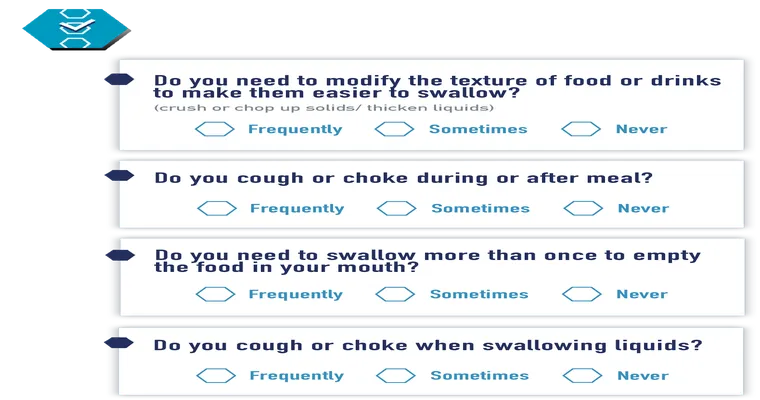Swallowing problems, or "dysphagia", can significantly impact the quality of life for both the affected individual and their loved ones. If your loved one is experiencing difficulties with swallowing, it's essential to understand the "symptoms", "causes", and potential "solutions" available. In this article, I will share some valuable recommendations to help manage this condition effectively.
Understanding Swallowing Problems
Swallowing difficulties can stem from various medical conditions, including "neurological disorders", "stroke", "cancer", or even the aging process. Common symptoms of dysphagia include coughing while eating, a sensation of food being stuck in the throat, and unintentional weight loss. Recognizing these symptoms early can help you seek appropriate medical intervention.
Medical Evaluation
The first step in addressing swallowing problems is to consult with a healthcare professional. A "speech-language pathologist" (SLP) specializes in diagnosing and treating swallowing disorders. They may conduct a "swallowing assessment" to determine the nature and severity of the problem. Based on their findings, they can recommend tailored therapies and strategies to improve swallowing function.
Dietary Modifications
One of the most effective ways to manage dysphagia is through dietary modifications. Your loved one may benefit from the following:
1. "Texture Modification": Foods can be modified to various textures, such as pureed, minced, or soft options. This adjustment can make swallowing easier and reduce the risk of choking.
2. "Thickened Liquids": Thickening agents can be added to liquids to achieve the right consistency. This adjustment helps prevent aspiration, where food or liquid enters the airway.
3. "Smaller Bites": Encourage your loved one to take smaller bites and chew thoroughly before swallowing. This practice can help ease the swallowing process.
Swallowing Therapy
In addition to dietary modifications, specific swallowing therapies can be beneficial. An SLP may recommend exercises to strengthen the muscles involved in swallowing. Techniques such as the "Mendelsohn maneuver" or "supraglottic swallow" can improve swallowing safety and efficiency. Consistent practice and guidance from a professional can lead to significant improvements.
Assistive Devices and Tools
Consider using assistive devices to make mealtime safer and more comfortable. Some options include:
"Adaptive Utensils": Specialized forks and spoons that are easier to grip can help your loved one eat independently.
"Non-slip Mats": These can be placed under plates to prevent slipping, making it easier for individuals with reduced motor skills to manage their meals.
"High Chairs or Elevated Seats": Using high chairs can promote better posture during meals, which can enhance swallowing.
Creating a Supportive Environment
Creating a supportive dining experience is crucial for individuals with swallowing problems. Here are a few tips:
1. "Minimize Distractions": A calm and quiet environment can help your loved one focus on eating and swallowing.
2. "Encourage Patience": Allow ample time for meals, and encourage your loved one to take their time while eating.
3. "Stay Hydrated": Ensure that your loved one remains hydrated with appropriate liquids. This is crucial, especially when consuming thickened liquids.
Conclusion
If your loved one has swallowing problems, it is vital to take proactive steps to address the issue. From "medical evaluations" to "dietary modifications" and "swallowing therapy", there are various solutions available to improve their quality of life. Remember, you are not alone in this journey, and seeking professional help can make a significant difference. By implementing these recommendations, you can help your loved one navigate their swallowing difficulties with greater ease and comfort.





